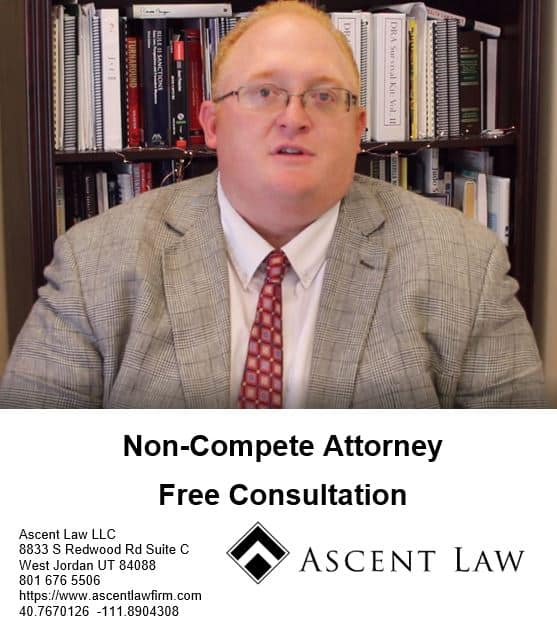
Some employers may require new employees to enter into non-competition agreements before beginning work, and such agreements usually take effect after the employer-employee relationship has ended. Employers may require non-competition agreements for a variety of reasons, including protection of trade secrets or goodwill.
However, courts generally disapprove of non-competition agreements as limitations on a former employee’s right to earn a living. Therefore, when made the subject of a legal dispute, non-competition agreements are closely scrutinized in the court system.
Legal Requirements for Non-Competition Agreements
In order to be considered valid, a non-competition agreement must:
• Be supported by consideration at the time it is signed;
• Protect a legitimate business interest of the employer; and
• Be reasonable in scope, geography, and time.
Non-competition agreements must generally be supported by valid consideration — the employee must receive something of value in exchange for the promise to refrain from competition. If an employee signs a non-competition agreement prior to beginning employment, the employment itself will be sufficient consideration for the promise not to compete. However, if an employee signs a non-competition agreement after beginning employment, the mere promise of continued employment will not be considered valid consideration for the promise. In this case, the employee must receive something else of value in exchange for the promise. Such additional consideration may consist of a promotion or other additional benefit that was not part of the original employment agreement.
Protection of Legitimate Business Interests
The goodwill developed by an employer in terms of customer relations is an asset, so an employer may use a non-competition agreement to prevent a former employee from capitalizing on that goodwill and competing with the original employer. Likewise, an employer may use a non-competition agreement to protect its confidential information. Generally, in order for the information to be entitled to protection, the employer must show that it took reasonable measures to keep the information secret, and that the information gives the employer a competitive advantage.
Reasonableness is a Key to the Agreement
In deciding whether to enforce a non-competition agreement, the court will balance the need to protect the employer’s legitimate business interests with any burden that enforcement of the agreement would place on the employee.
Non-competition agreements must be reasonable in duration and scope. The reasonableness of the duration of the agreement will depend on the specific facts of each case. For instance, if the non-competition agreement is designed to protect confidential information, the duration should be no longer than the time for which the information has value.
The geographical area covered by the agreement must also be reasonable considering the circumstances. This will depend greatly on the services provided by the employee, and the importance of the services to the employer’s business. Generally, courts will not allow a non-competition agreement to prevent an employee from working in a geographical area where the employer does not do business.
If a court finds that a non-competition agreement is overbroad, it may narrow the scope and duration of the agreement and enforce it as modified, or it may refuse to enforce the agreement entirely if it finds that it was clearly intended to prevent legitimate business competition by the former employee.
Non Compete Lawyer Free Consultation
When you need legal help with non-compete Agreements in Utah, please call Ascent Law LLC for your free consultation (801) 676-5506. We want to help you.
8833 S. Redwood Road, Suite C
West Jordan, Utah
84088 United States
Telephone: (801) 676-5506
Recent Posts
Employee Benefits And Executive Compensation Law

